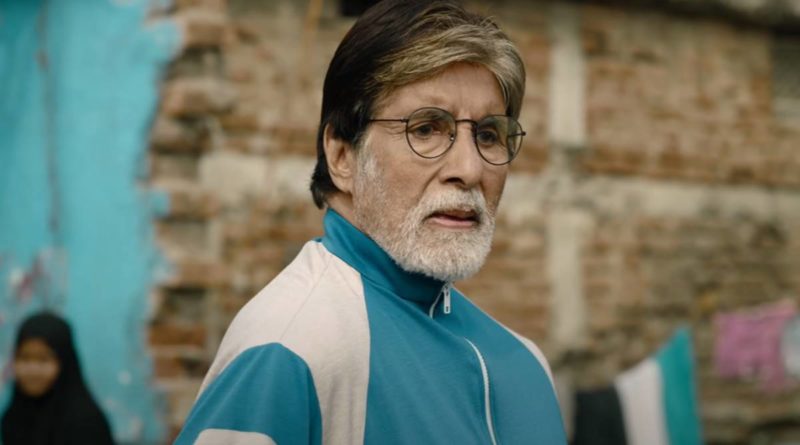Ajay-Atul first collaborated with filmmaker Nagraj Manjule on the Marathi film ‘Fandry’ which marked the latter’s debut as a feature film director. After that, they collaborated with each other on ‘Sairat’, which became one of the biggest blockbusters to have come out of the Marathi film industry. It had a spectacular soundtrack that resonated with non-Marathi film music listeners as well. Two of the songs from the film were reused in its Hindi remake as well. With ‘Jhund’ being Nagraj Manjule’s debut Hindi film and Ajay-Atul doing the music for it, one certainly has good expectations from the soundtrack.
Apart from being prolific composers in Marathi cinema, Ajay-Atul has also written the lyrics for many of the songs composed by them. “Aaya Jhund”, perhaps, is the first attempt at writing a song in Hindi. The film is about a football coach trying to reform the lives of a bunch of young slum dwellers who have no direction in their lives. Keeping the theme of the film and the situation in mind, Ajay-Atul use street lingo in the verses and the result is quite satisfactory. The song boasts of thumping percussions and the tune, despite reminding some of Ajay-Atul’s earlier songs, works.
Amitabh Bhattacharya, whose association with Ajay-Atul dates back to the time they worked together on films like ‘My Friend Pinto’ and ‘Agneepath’, gets to write the remaining three songs in the album. The prelude music of “Lafda Zala” brings back memories of ‘80s synth pop music. Perhaps in a bid to bring some variety to the album, Ajay-Atul layer the song with techno music and one is not sure whether that was a good decision. They do bring in percussions but what bothers you the most is the presence of an insipid tune that just doesn’t manage to impress. Amitabh, through his verses, does a very good job of introducing the listeners to the primary characters in the film and the kind of lives they lead.
Sid Sriram, one of the most prolific singers in the Tamil and Telugu film industry, who also sings occasionally in Malayalam and Kannada, makes his Hindi debut with two songs in ‘Jhund’. The first track is “Laat Maar”, in which he shares credit with Sourabh Abhyankar who renders the rap portions. A song that seeks to inspire and evoke emotions, “Laat Maar” has a good tune and some well-written verses. Sid Sriram brings certain nuances to the song with his immersive rendition and that helps you further invest yourself in the song as a singer.
Those who haven’t heard the numerous songs rendered by Sid Sriram in different South Indian languages would get an idea about versatile he is as a singer when they compare the way in which he has sung “Laat Maar” and “Baadal Se Dosti”, two very different tracks. “Kyon rehti hai tu dhoop ke mausam ko kosti, behtar hai karle zindagi baadal se dosti….” – as you hear these lines, you realize the song has a philosophical bent to it. The tenderness with which Sid sings the Antara portions make you feel for the song. The way the choral vocalists render the song, too, add a lot of value to it. One of the best songs on the album, it keeps growing on you with multiple hearings.
The soundtrack that Ajay-Atul has put together for ‘Jhund’ doesn’t really match up to the gigantic expectations one had from it but it is a good album that is in sync with the theme of the film and should support the narrative very well. The two songs that Sid Sriram has rendered for the film should help him introduce himself to a pan-India audience and secure more work for himself in the Hindi film and music industry.

